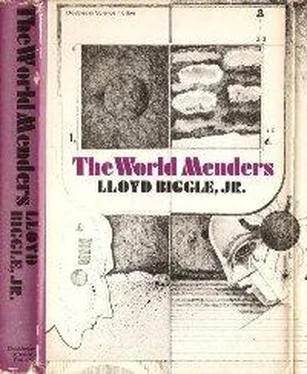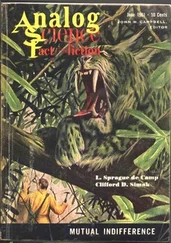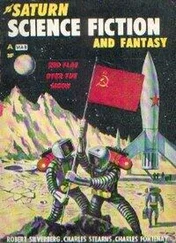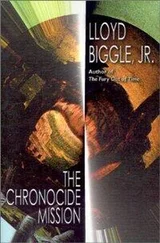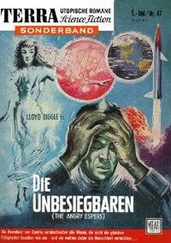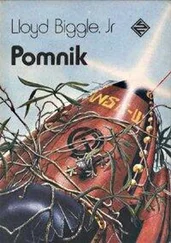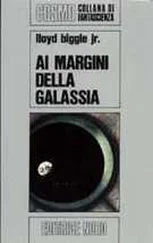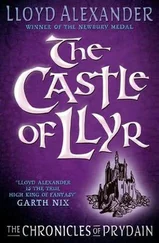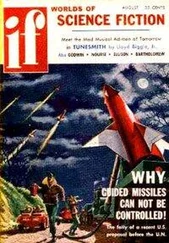Lloyd Biggle Jr. - The World Menders
Здесь есть возможность читать онлайн «Lloyd Biggle Jr. - The World Menders» весь текст электронной книги совершенно бесплатно (целиком полную версию без сокращений). В некоторых случаях можно слушать аудио, скачать через торрент в формате fb2 и присутствует краткое содержание. Год выпуска: 1971, Издательство: Doubleday, Жанр: Фантастика и фэнтези, на английском языке. Описание произведения, (предисловие) а так же отзывы посетителей доступны на портале библиотеки ЛибКат.
- Название:The World Menders
- Автор:
- Издательство:Doubleday
- Жанр:
- Год:1971
- ISBN:нет данных
- Рейтинг книги:5 / 5. Голосов: 1
-
Избранное:Добавить в избранное
- Отзывы:
-
Ваша оценка:
- 100
- 1
- 2
- 3
- 4
- 5
The World Menders: краткое содержание, описание и аннотация
Предлагаем к чтению аннотацию, описание, краткое содержание или предисловие (зависит от того, что написал сам автор книги «The World Menders»). Если вы не нашли необходимую информацию о книге — напишите в комментариях, мы постараемся отыскать её.
The World Menders — читать онлайн бесплатно полную книгу (весь текст) целиком
Ниже представлен текст книги, разбитый по страницам. Система сохранения места последней прочитанной страницы, позволяет с удобством читать онлайн бесплатно книгу «The World Menders», без необходимости каждый раз заново искать на чём Вы остановились. Поставьте закладку, и сможете в любой момент перейти на страницу, на которой закончили чтение.
Интервал:
Закладка:
PEOPLE.
In Farrari’s intensive studies at the Cultural Survey Academy he had learned to analyze and evaluate and classify any work of art set before him. He had plodded wearily, but efficiently, through kiloreams of prose and poetry, and kilohours of music, and kilometers of art and architecture with no more than a passing thought to the minstrels and writers and poets and musicians and painters and sculptors and architects who created those things.
He had given no thought at all to the people for whom those works of art were intended. It was occurring to him for the first time that the art of the universe had not been called into being solely for the study and diversion of the Cultural Survey. The aspiration and sense of beauty of living beings—of people— were the generative impulse behind each word, each note, each stroke of the brush or chisel.
Just as human perspiration and blood throbbed behind each casual statement of the word revolution in IPR Manual 1048-K.
This world of Branoff IV. Farrari had seen one class of its inhabitants every day since his arrival. He had seen the emperor, or kru, and his little coterie of nobility portrayed in bas-relief sculpture of a surprising strength and maturity. He had seen the valiant deeds of the kru’s warriors—who were not so much an army as an elite palace guard—depicted in sculpture and painting, celebrated, in legend, praised in song.
What of the people?
He searched his memory. He had hundreds of teloid cubes in his workroom files, neatly cataloged and instantly available to project a three-dimensional time image with natural color and sound. Every palace and temple had been meticulously photographed in all of its rich detail: its masterful bas-reliefs; its wall paintings—which were stylistic monstrosities because the paints were of poor quality and the paintings had been continuously restored and touched up by successive generations of artists; its lovely tile friezes; its tapestries; its bungled attempts at full sculpture—which continued to puzzle him because the relief carving was so excellent. He had teloids of carved and etched weapons, of ceramics, of jewelry and ornaments, of illuminated scrolls, even a teloid of one of the hand-painted robes that were ceremoniously burned after the kru had worn them once. He had more than a hundred teloids of the exterior details of the kru’s Life Temple and its astonishing Tower-of-a-Thousand-Eyes that he had unhesitatingly classifed as unique, to the undisguised amusement of Jan Prochnow, the expert in comparative theology. (“It’s only a minor variant, my boy, and a rather naïve one at that.”) He had teloid cubes of every kind of art, ornamental, or practical, and as many specimens as the IPR field team had been able to surreptitiously ferret out for him, and he had been studying them for months. He had not even been aware of the existence of a people, of the masses of intelligent beings that those thousand eyes of the kru’s tower stared out upon. Did they pass by quickly, with lowered gaze, or did they pause and boldly stare back?
Suddenly he wanted to know.
He sprang from his bed and hurried to the records section. “I’d like to take a few teloids,” he announced.
Ganoff Strunk hauled himself from behind his desk, an expression of wounded dignity on his lined face. “Did we miss something? I thought we gave you everything.”
“You did,” Farrari assured him. “I’d just like to take a few teloids of the slaves.”
“The olz. Yes. What do you mean—you’d like to take a few teloids?”
“Well—”
Strunk clutched his ample belly and laughed convulsively. “You think all you have to do is walk up to an ol, point your camera, and say, ‘Smile’? See here, my boy, as far as the ol is concerned, you are a thing, from the nether regions, and don’t ever forget it! Before you can approach a native you have to be a native—in dress, mannerisms, speech and character. What role would you take? Slave, overseer, soldier, artisan, merchant, priest, nobleman—why, you couldn’t walk along a city street without getting yourself stoned as a degenerate! You don’t even know which finger the well-bred ol uses to pick his nose. The first time you sneezed in the presence of a durrl, a slave overseer, you’d be executed for insubordination. Nobody—and I do mean nobody— gets close to a native until he’s been exhaustively trained and strenuously examined. Even so, we lose agents. Especially on planets such as this one we lose agents, because life is held in such low esteem that a soldier will likely as not run a spear through the first ol he meets of a morning just for practice, or the general hell of it. We lose them, but we certainly don’t throw them away.”
Farrari said protestingly, “There has to be a first time for everyone. Who trained the first IPR agents?”
“They trained themselves, my boy, and a damnably touchy business it is for those making an initial contact. They photographed and recorded and observed endlessly, and stole garments and tools when they could get away with it, and they studied—intensive study such as you never dreamed of at your snug academy. Their lives depended on it. Usually it’s a year, at least, before an IPR agent even allows a native to see him from a distance—if he can help it. And you want to take a few teloids! Look here. You want teloids of the olz? Just tell me how many thousand you need. We have them.”
“Oh, I don’t need that many.”
“Just enough to give you a glimpse of life on Branoff IV? Here are some duplicates we’ve made up for the Bureau Archives. They’re yours until the next supply contact.”
“Thanks. They’ll do nicely.”
“I’ll warn you, though. It isn’t a pleasant life. You won’t like it.”
Farrari hurried back to his workroom, snapped the first tube of teloid cubes into the projector, threw the switch—and recoiled in horror.
The three-dimensional projection filled the room in front of him. A slave woman lay on her back, her arms and legs threshing in a convulsion of agony, while a durrl calmly lashed at her with an unpruned branch. The whistle of the whip, the solid whup of its landing, the woman’s screams of torment, the durrl’s grunts blended in a terrifying melange of sounds. White-faced, wincing at every flick of the whip, Farrari was sickened into immobility. The blows struck with ruthless precision—now on the swollen abdomen, now on the already unrecognizable face, now on the churning limbs. Each downward stroke pealed away gruesome ribbons of flesh; each upswing flecked bright globules of blood into the cheerful sunlight.
The cube ran its five-minute course; at the very end the woman’s body heaved in a final, wracking paroxysm of pain, and she gave birth.
Farrari waited helplessly for the next cube, but the projector was set to repeat. It clicked, and the abhorrent scene ran its course again. And again. Despite his numbing nausea, his overwhelming urge to turn away, to shut off the projector, to flee the room, he watched hypnotically and began to pick out small details. The woman had been working on the harvest. A pile of dirt-encrusted tubers stood near her battered head. One lay in the foreground, almost at Farrari’s feet, its bulging diameter neatly incised with teeth marks. The emaciated arms and legs completed the story: the woman was starving; she had stolen a bite of food.
The cube was on its fourth repetition when Farrari abruptly became aware that the central characters in the violent drama were not alone. Two naked men, a woman wearing a loincloth, and a naked child watched with apparent indifference, as though they had seen it all before and it was anyway of no concern of theirs. Yet their eyes flashing beneath low, protruding brows, transfixed Farrari. Where the faces were utterly devoid of emotion, the eyes were alive—with the tragic accumulation of generations of loathing and terror? He knew that he would never forget those dead faces and their pathetically alive, staring eyes.
Читать дальшеИнтервал:
Закладка:
Похожие книги на «The World Menders»
Представляем Вашему вниманию похожие книги на «The World Menders» списком для выбора. Мы отобрали схожую по названию и смыслу литературу в надежде предоставить читателям больше вариантов отыскать новые, интересные, ещё непрочитанные произведения.
Обсуждение, отзывы о книге «The World Menders» и просто собственные мнения читателей. Оставьте ваши комментарии, напишите, что Вы думаете о произведении, его смысле или главных героях. Укажите что конкретно понравилось, а что нет, и почему Вы так считаете.
